
Caring for a pet parrot can be an incredibly rewarding experience. Not only do these feathered friends bring joy and companionship, but they also require special care that will keep them healthy and safe.
Provide a spacious cage with toys and perches to allow for physical activity and mental stimulation. Offer a balanced diet of fresh fruits, vegetables, nuts, and pellets to meet their nutritional needs.
To ensure your parrot is happy and healthy, there are certain tips and tricks you should learn to properly care for it. Here are five practical tips for parrot care to help keep your feathered friend happy and healthy.
Parrot Care and Its Benefits
Taking care of a pet parrot can bring many benefits to your life. Not only will your parrot provide you with companionship and entertainment, but the process of caring for them can also be rewarding.
By providing a suitable living environment, social interaction, and a balanced diet, you can help ensure that your parrot remains happy and healthy.
Regular playtime and exercise can also improve their physical health, while mental stimulation through interactive toys and activities can keep them mentally stimulated and prevent boredom.
Additionally, caring for a pet parrot can bring a sense of responsibility and purpose, while also providing opportunities to learn about avian behavior and biology. With proper care, your pet parrot can be a faithful and loving companion for many years to come.
Why It’s Important to Have the Right Advice
When it comes to taking care of a pet parrot, having the right advice is essential in making sure they are happy and healthy. Many people underestimate the amount of work required to properly care for a parrot and end up unwittingly causing them distress or even harm.
Having access to practical tips that keep these vulnerable creatures safe and content can go a long way toward ensuring that your pet parrot flourishes in its new home.
There are five main areas to consider when it comes to proper parrot care:
- enrichment activities
- diet
- training
- health checks, and
- safety measures
As long as these tips are followed in conjunction with lots of love and attention from their human family members, a pet parrot can become a truly delightful companion with whom one can share many marvelous moments.
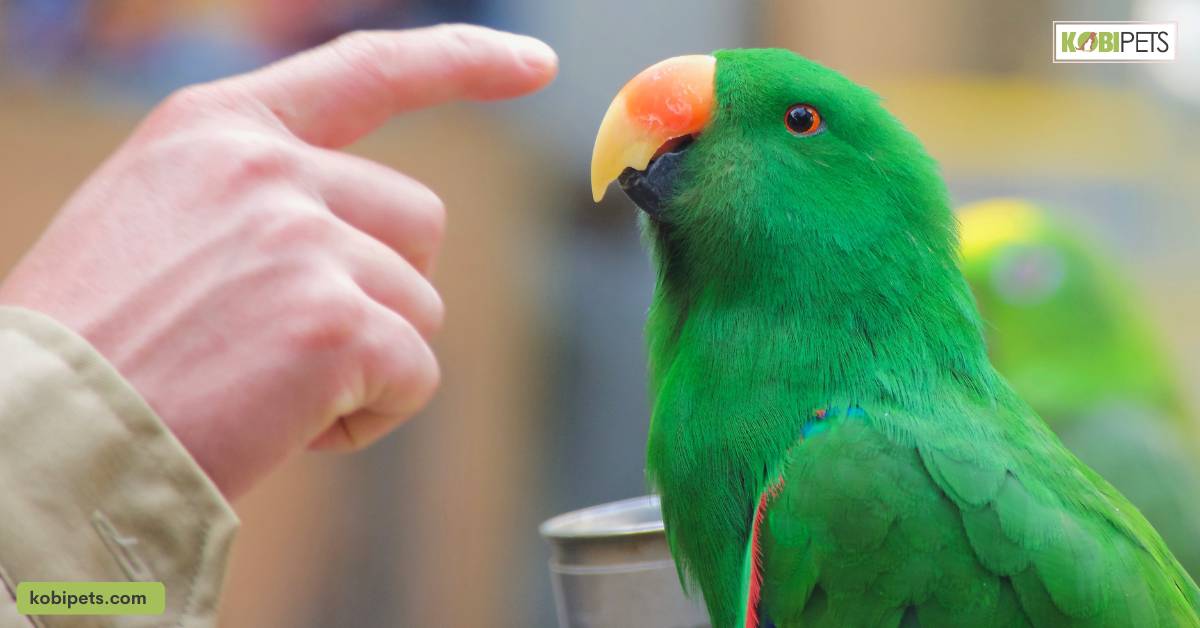
Tip 1: Choose the Right Cage for Your Pet
A cage is a crucial component of your pet parrot’s living environment and can greatly impact its physical and mental well-being. When selecting a cage for your parrot, it is important to choose one that is appropriately sized.
Made from safe and non-toxic materials and provides ample opportunities for mental and physical stimulation.
Here are two subheadings to consider when choosing the right cage for your pet parrot:
Consider Size, Material, and Other Factors
When selecting a cage, it is important to choose one that provides enough space for your parrot to move around freely and spread their wings, as well as perches for resting and climbing.
The cage should also be made from safe and non-toxic materials, such as:
- stainless steel or wrought iron, and
- should be easy to clean and maintain
Additionally, consider factors such as the cage’s location, ventilation, and accessibility to ensure that your parrot is kept in a safe and healthy environment.
Keep Plenty of Toys in the Cage
It is important to provide your pet parrot with plenty of toys to keep them entertained and mentally stimulated. Offer a variety of toys, including chew toys, puzzle toys, and interactive toys, to provide mental and physical stimulation and prevent boredom.
Regularly rotating your parrot’s toys can also help keep them interested and engaged. By providing a well-equipped cage with plenty of toys, you can help ensure that your pet parrot remains happy, healthy, and entertained.
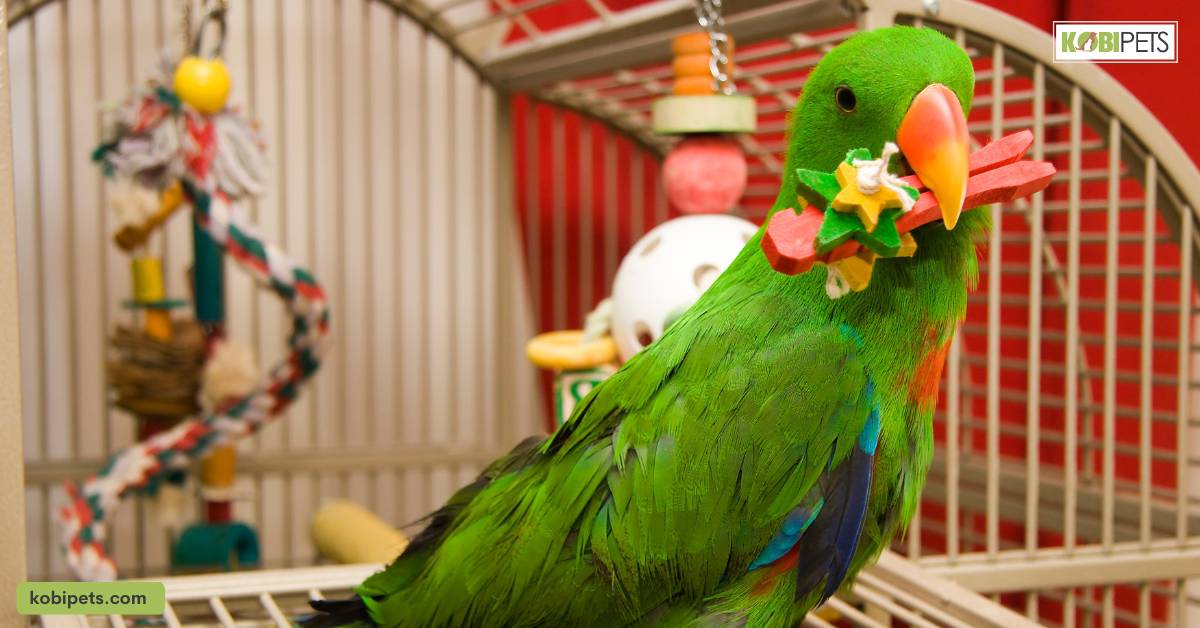
Tip 2: Develop a Balanced Diet
A balanced diet is essential for keeping your parrot healthy and disease-free. Parrots require a diet of fresh fruits, vegetables, seeds, and pellets to meet their nutritional needs. Additionally, offering occasional table food can provide enrichment through color, shape, texture, and taste.
To ensure your parrot gets the nutrition it needs while avoiding any potential allergens such as peanuts or dairy products, consult with your veterinarian to formulate an optimal diet plan that accounts for all the necessary nutrients to maintain a healthy lifestyle.
Follow Nutrition Guidelines
Proper nutrition is essential for keeping your parrot healthy—and avoiding any potential diseases or health issues. As birds are omnivores, they require fruits, vegetables, seeds, and mixtures as part of their diet.
- To meet their nutritional needs offer them a variety of fresh fruits and vegetables (such as apples, oranges, carrots spinach, and peppers).
- Commercially available seed mixtures or pellets formulated specifically for parrots are also recommended.
- Pellet diets typically contain grains as well as vitamin-fortified ingredients such as vitamins A and D3 which are important for overall health in pet birds.
In addition to commercial foods provided by pet stores, nutritious table foods can be offered occasionally (for example boiled potatoes or cooked rice).
Variety of Fruits, Veggies, and Pellets
In addition to offering nutritious food items, providing different varieties of pellet diets will not only stimulate the bird’s interest but help ensure it gets the necessary nutrients. Providing occasional treats is also encouraged but should be done sparingly as tasty treats may cause obesity in some breeds.
Finally, remember that all these things should be done under veterinary supervision to ensure optimal health for your pet bird.
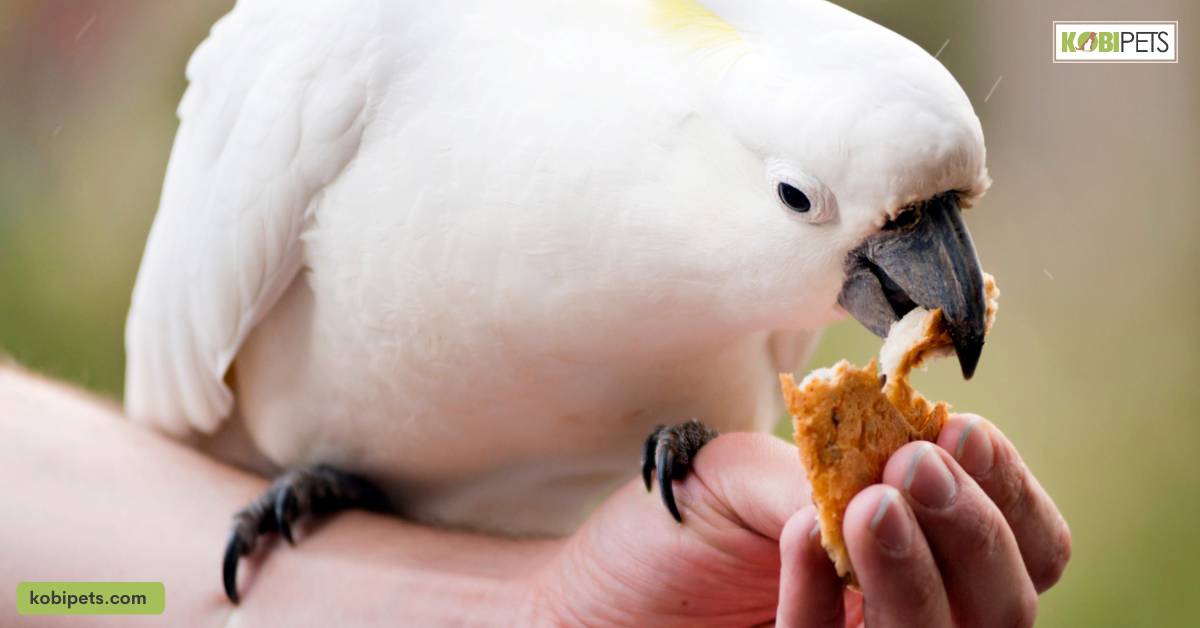
Tip 3: Provide Mental Stimulation
Mental stimulation is key for keeping a parrot entertained and stimulated, as many parrots will become bored in captivity if not given enough stimulation.
This can be done by providing regular interaction and activities for your pet bird that require it to think.
Get Your Parrot Used to Human Interaction
Interaction with you or other family members is essential for your parrot’s physical and mental health. To get your parrot used to human contact, give them lots of attention and take the time to talk to them—you can even teach them some words!
Also, make sure they have access to sunlight (preferably natural) and are exposed to different types of music too. All these activities will help keep your feathered friend entertained while providing the mental stimulation they need.
Play Games and Teach Tricks for Exercise
Playing games with your parrot helps provide mental stimulation by stimulating their mind and body at the same time. Try teaching basic tricks such as targeting or retrieving items (toys, paperclips, etc.) or filling treat balls with their favorite treats.
This provides a challenge that encourages problem-solving skills as well as physical exercise from running around after the treat ball. Be sure not to throw the item too far away so they don’t lose sight of it before they can retrieve it successfully!
Additionally, consider buying toys that offer something different like pull ropes or Tarzan swings which will help keep them entertained while also providing valuable exercise opportunities.
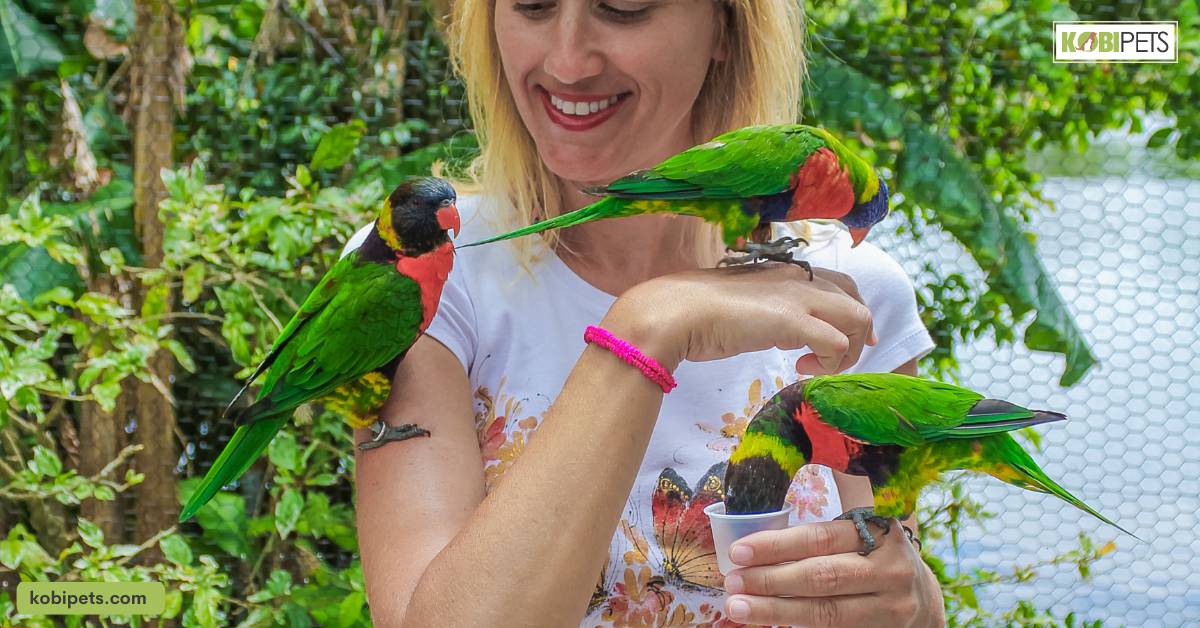
Tip 4: Offer a Variety of Perches
Perches play a crucial role in the physical and mental well-being of your pet parrot. By providing a variety of perches, you can allow your bird to exercise their feet and legs, and provide them with a sense of security and comfort.
Here are two subheadings to consider when selecting perches for your pet parrot:
Natural Branches and Artificial Toys
Offering a mix of natural branches and artificial toys as perches can provide your parrot with a variety of textures and shapes to exercise on. Natural branches, such as those from apple, manzanita, or willow trees.
Provide a comfortable and secure perch for your bird, while artificial toys, such as ropes or swings, can offer additional stimulation and exercise opportunities.
Switch Up the Location to Prevent Pressure Sores
Regularly changing the location of your parrot’s perches can help prevent pressure sores and ensure that your bird remains physically active. By rotating the position of the perches, you can also provide your parrot with new and stimulating views of its environment, which can help prevent boredom and promote mental stimulation.
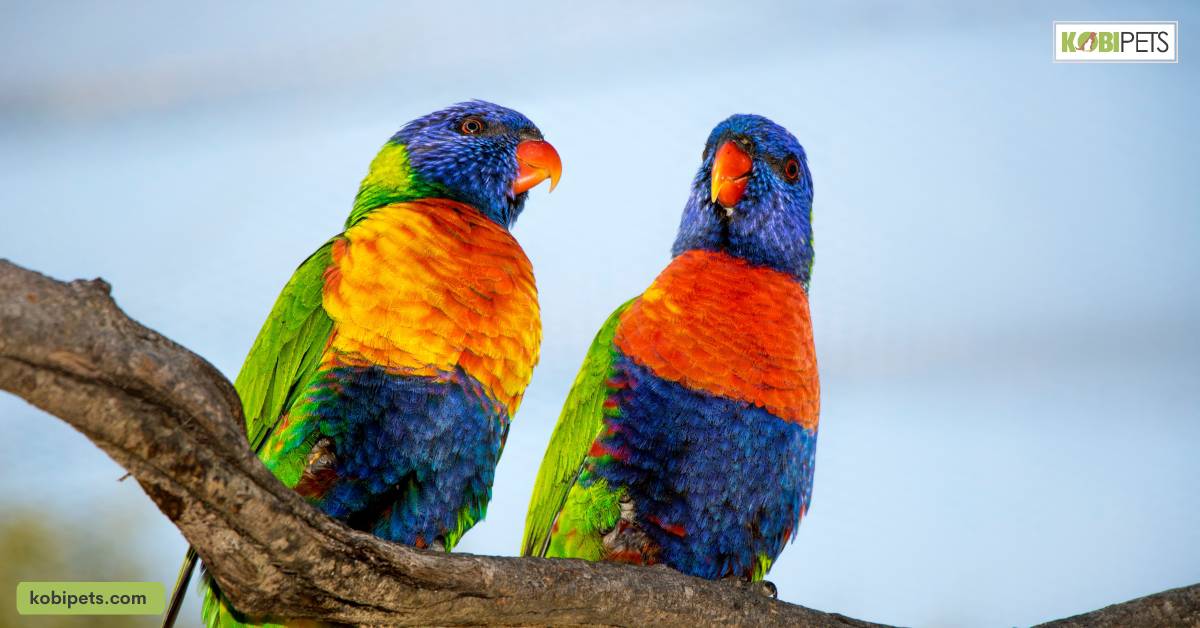
Tip 5: Clean Regularly and Ensure Hygiene
Maintaining a clean environment is essential for keeping your parrot healthy, happy, and parasite-free. It is recommended to clean the cage and other bird accessories at least once a week with an appropriate cleaning solution that won’t be toxic to your pet bird.
Remove Debris From the Cage Daily
Remove droppings and other debris from the bottom of the cage daily. This not only keeps your parrot’s environment cleaner but also prevents any mess from spreading throughout your house as it attracts dirt, dust, and potential parasites.
Keeping the floor of the cage dry is important too, as wet floors can encourage bacteria growth which can cause disease in birds.
Change Water Bowls and Clean Toys
Providing fresh food and water every day is essential for your parrot’s health so make sure you’re replenishing their bowls daily with fresh and clean food and water. Additionally, it’s beneficial to give them new toys regularly so they don’t get bored or become overwhelmed by the same old toys in their cages after some time.
This helps reduce stress levels in pet birds as well. To ensure hygiene when selecting toys for your parrot, make sure you’re choosing quality ones that are free from any glues or paints that could harm them if ingested.
Finally, wash all the cages accessories at least once a week with water (or mildly diluted gentle soap) to remove any bacteria—natural sunlight can be used as an effective alternative too!
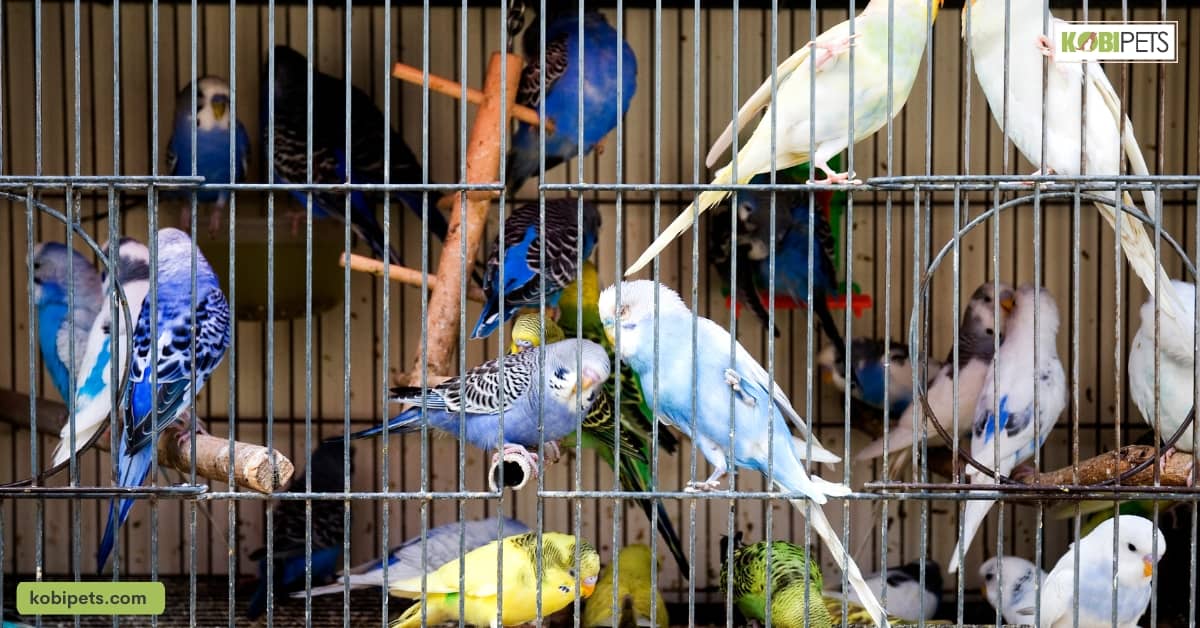
In conclusion
Providing the best care for your parrot is essential for their happiness and overall health. By following the tips discussed in this blog post, you can ensure that your pet parrot lives a fulfilling life filled with physical activity, mental stimulation, social interaction, and proper nutrition.
Parrots are intelligent and social creatures, so taking the time to understand their needs and providing a loving and nurturing environment is essential to their well-being. With the right care, your parrot can thrive and bring joy and laughter to your life for many years to come.






